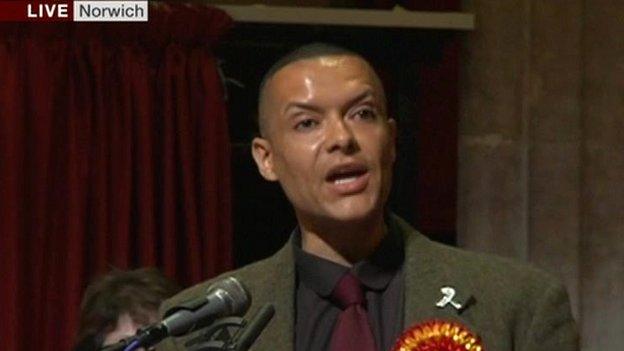General Election 2015: Tories dominate in the East
- Published
- comments
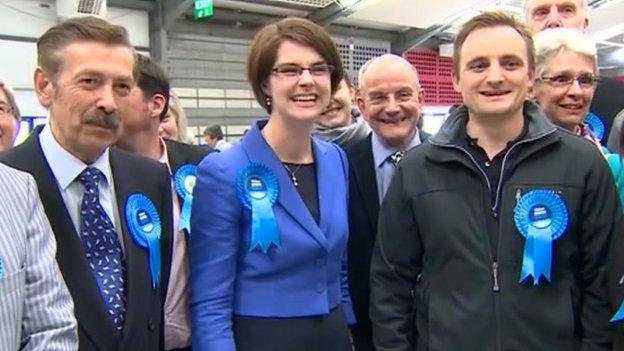
Chloe Smith increased her share of the votes while holding her Norwich North seat
On 16 November 2012, Labour's Andy Sawford stood on the stage of the Lodge Park Sports Centre in Corby after winning the by-election and declared: "The road to Downing Street runs through Corby."
Well, clearly it does, for last week he was one of the party's casualties in the East of England.
Labour is in shock after the results here.
Ever since its almost total wipe out in 2010, the party has tried incredibly hard to re-establish itself as a serious force in the East of England. It has concentrated staff and resources on the region, and senior figures paid regular visits.
Labour even gave us a "Campaign Tsar", the (former) Shadow Chancellor Ed Balls, but it seems that voters in the region were not convinced.
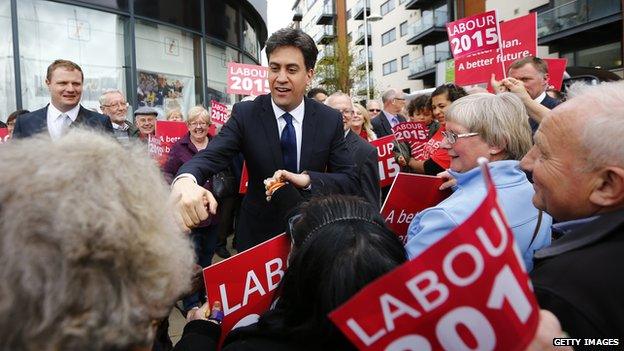
Ed Miliband visited Ipswich but his party did not make specific pledges to the region
"I don't know what more we could have done," one despairing candidate told us after their count. "We knocked on the doors, we had the conversations, we thought we had the right message". Even the Conservatives acknowledged that Labour won the so-called "ground war" on the streets.
Bob Blizzard, the man who led the inquiry into why Labour did so badly in the East last time round and who described the 2010 election result as "a near death experience", was so distraught at losing this time he left the count at Waveney refusing to be interviewed.
The Tories chalked up some massive successes. Not only did they stop Labour from taking any of their seats, nearly every MP chalked up increased majorities.
Some of them are now eye-watering: Therese Coffey in Suffolk Coastal more than doubled her majority from 9,128 to 18,842; Richard Bacon in South Norfolk saw his go up from 10,940 to 20,493; and Joanna Churchill in Bury St Edmunds added 9,000 to the 12,000 majority she inherited from David Ruffley.
When the local election results came through, the Conservatives gained seats across the region. The party that has always dominated the East has not been this strong for 25 years.
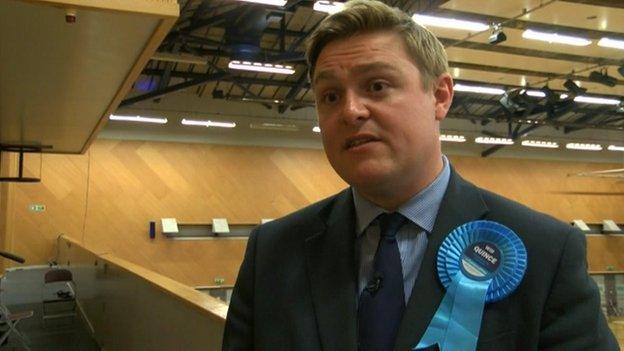
Will Quince took the Colchester seat for the Conservatives
In the last few days of the campaign it started to look like voters were moving towards the Conservatives, even if no-one had any idea how big the swing was going to be.
A wish for economic stability and fears about a Labour/SNP tie-up were very clearly factors in part of that swing. Labour told us two weeks ago that Scotland, in particular, kept coming up on the doorsteps.
But the Conservatives deployed another weapon which seems to have had an impact - a set of dedicated policies for the East.
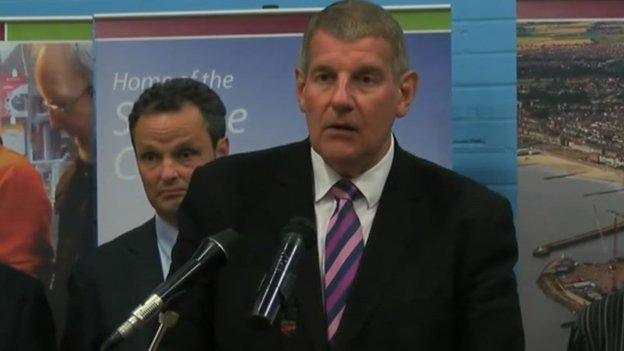
Bob Blizzard lost out to Peter Aldous in Waveney
It started when the prime minister came to Ipswich in February and promised £4bn of infrastructure investment and 250,000 new jobs over the lifetime of a new Conservative Parliament.
The party's manifesto had a dedicated section to the East, including promises about upgrading the A47 and A14, faster train times to London, and new bridges for Lowestoft and Ipswich.
None of these promises were new but they showed that the Tories had a plan for the East of England.
"We had to fight hard to get our own section in that manifesto," says one Tory candidate. "There was a lot of opposition at CCHQ (Conservative headquarters) to the idea but we said "if you're going to have ones for Scotland and the North of England, we need to be in there too".
None of the other parties were so specific with their pledges (Labour's manifesto mentioned the South East and the Middle East but not the East of England) and it gave the impression that they didn't understand the region as well.
You can argue that the Tories' promises were vague and lacked detail and time scale, but judging by the members of the public we spoke to during the campaign, it seemed that the message got through and that influenced how some people voted.
Labour did gain two new MPs in the East and, thanks to the collapse of the Lib Dem vote, it is now in second place in many seats in the region. It gives the party a potential springboard to doing even better next time round, but to do so it will need to find a clear message that appeals to the East.
For the Conservatives, they now need to deliver on those promises.
- Published8 May 2015
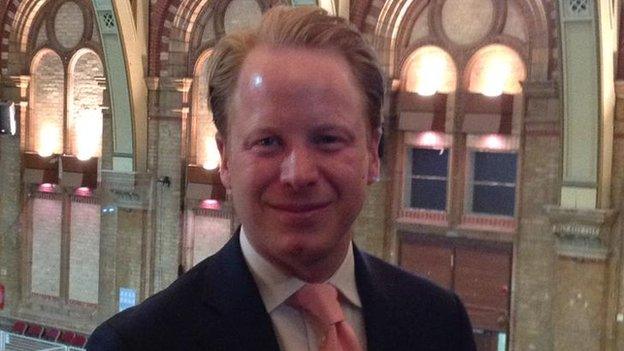
- Published8 May 2015

- Published8 May 2015

- Published8 May 2015
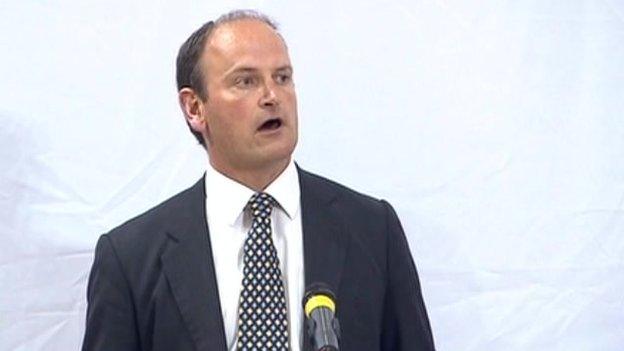
- Published8 May 2015

- Published8 May 2015
